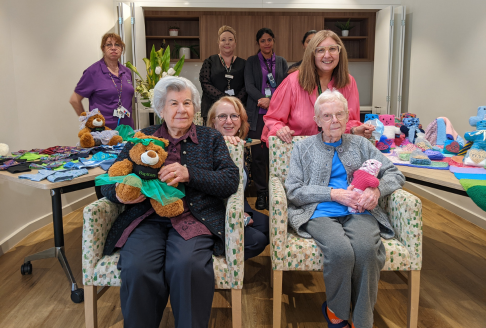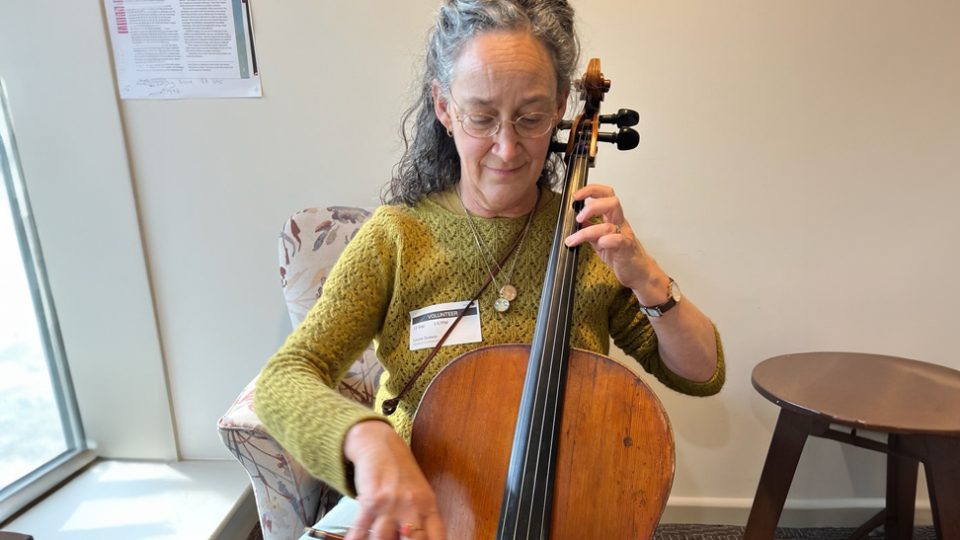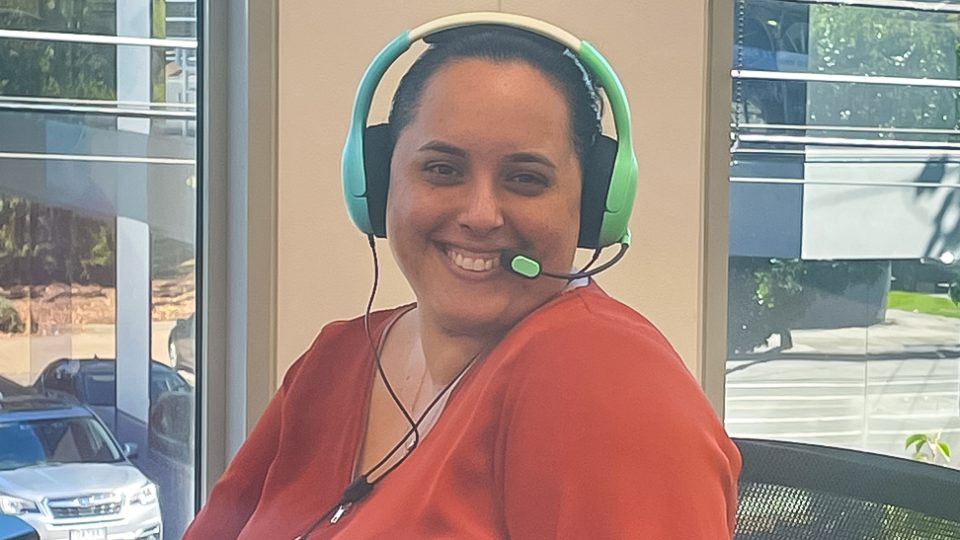The bear necessities – Baptcare Wattle Grove residents knit toy teddies for children in need
- 22 Sep 2023

If you hear a clicking sound around the corridors of Baptcare’s Wattle Grove Residential Aged Care community, chances are it’s Phyllis Dawe knitting.
She’s good at it, which makes sense – she has had 90 years of practice. “I was taught to knit by my grandmother, auntie and mother when I was three or four,” Phyllis recalled.
“I’ve been knitting ever since. I had a temporary stay at Wattle Grove last year and started knitting squares for residents’ rugs. When I went home I kept knitting the squares, well over 100.
“Now that I have moved back in permanently, they said they wanted to make bears and I was more than happy.”
Maria Alvaro, Wattle Grove Spiritual Care Coordinator, said, “We decided to knit bears to give to children in Baptcare’s Foster Care and Houses of Hope programs.
“I approached Phyllis, knowing she has always been very involved in community work. We started knitting scarves for Bernie Bears, Baptcare’s stuffed toy bears. Then we decided to make some bears of our own.
“Phyllis led the way and knitted 17 bears. The mother of our lifestyle assistant Kiran, Swarnjit Kaur, knitted another seven. We had staff and residents sewing them up, stuffing them and putting their faces on in a real team effort.
“Then our Lifestyle team decided to make clothes for Bernie Bears, and that became its own project.
“Phyllis is amazing, so proactive. She says it gives her meaning and purpose to do things for others. She’s an absolute joy,” Maria said.
Phyllis grew up in Brunswick during the Depression, worked in clothing factories then spent the bulk of her career doing clerical work in Melbourne’s biggest hospitals. Her family was committed to the Salvation Army, an opportunity for Phyllis to exercise her love of singing and community outreach.
“Knitting helps with my arthritis and it is very relaxing as long as you keep your mind on it,” Phyllis said.
“I feel that it is something I can contribute so I should be doing it for people. They started calling me the Teddy Bear Lady in here!
“I love the thought of refugee and foster care children receiving the bears, but I also want to keep going with rugs because I want to help out other people in Wattle Grove.”
Never one to sit idle, Phyllis has rallied several other nimble-fingered residents to join in a project to make knitted bags to give out on Mother’s Day 2024. “We are aiming for at least 50,” she shrugged.
Community news
-

Staff Spotlight: A Day in The Life of a Foster and Kinship Care Practitioner
Rachel Binger is a Foster & Kinship Care Practitioner at Baptcare’s Ulverstone Hub in Tasmania. She starts the day with penguins, ends it with bingeable television, and in between supports everyday superheroes: foster carers.
- 02 Apr 2025
-

Volunteer Spotlight: Louise Godwin and her cello
Our Baptcare volunteers are amazing and it is always wonderful to have the chance to get to know them and learn a little about why they volunteer with Baptcare. Louise, a relatively new volunteer at Baptcare Karana Residential Aged Care community, tells us all about her musical talents and why she volunteers her time twice a week to play cello for the residents.
- 01 Apr 2025
-

Staff Spotlight: A day in the Life of a Customer Enquiry Consultant
Hi, my name is Isabelle Oehler, and I have been working in the Customer Enquiry Centre (CEC) for a little over three years. Essentially, we are the first point of contact for prospective enquiries – acting as the ‘front door’ to Baptcare.
- 21 Mar 2025
